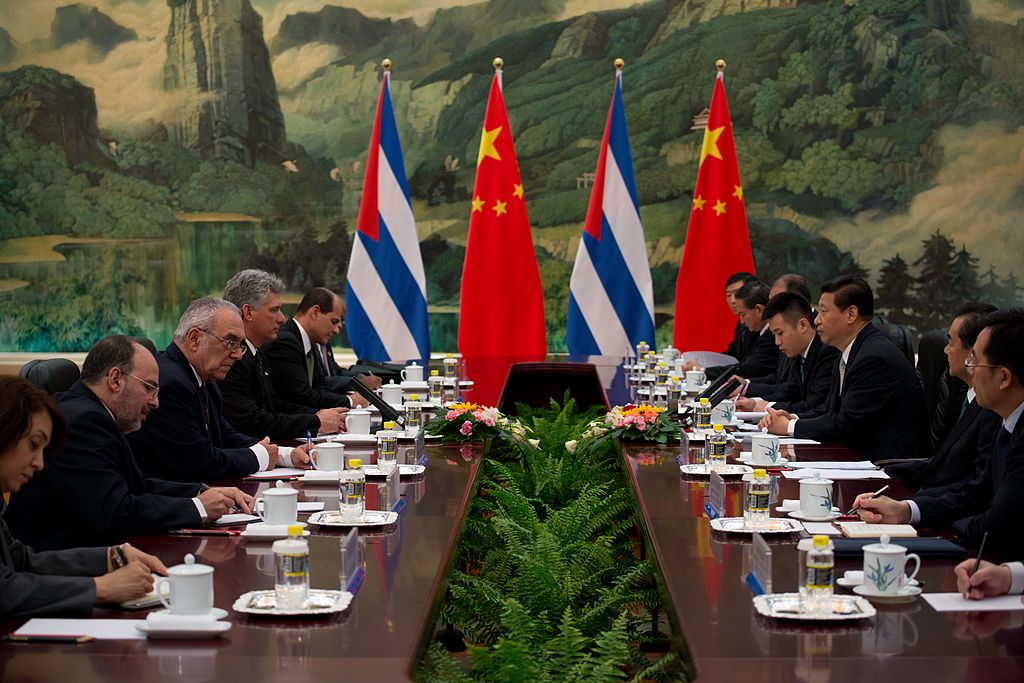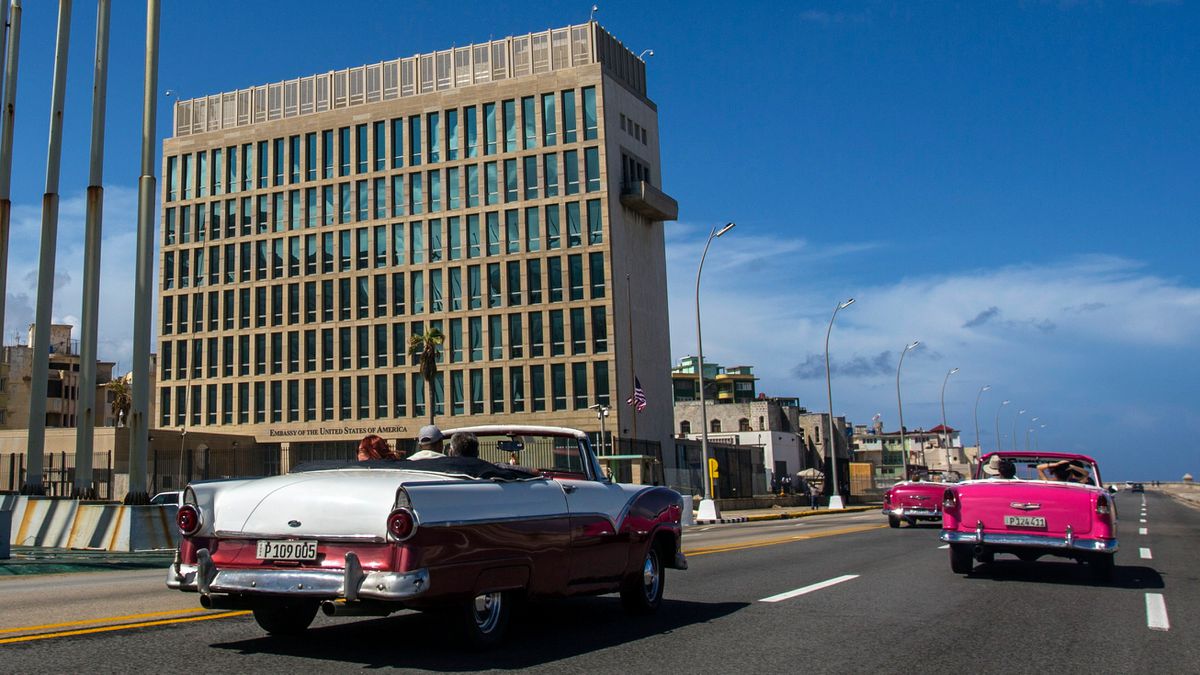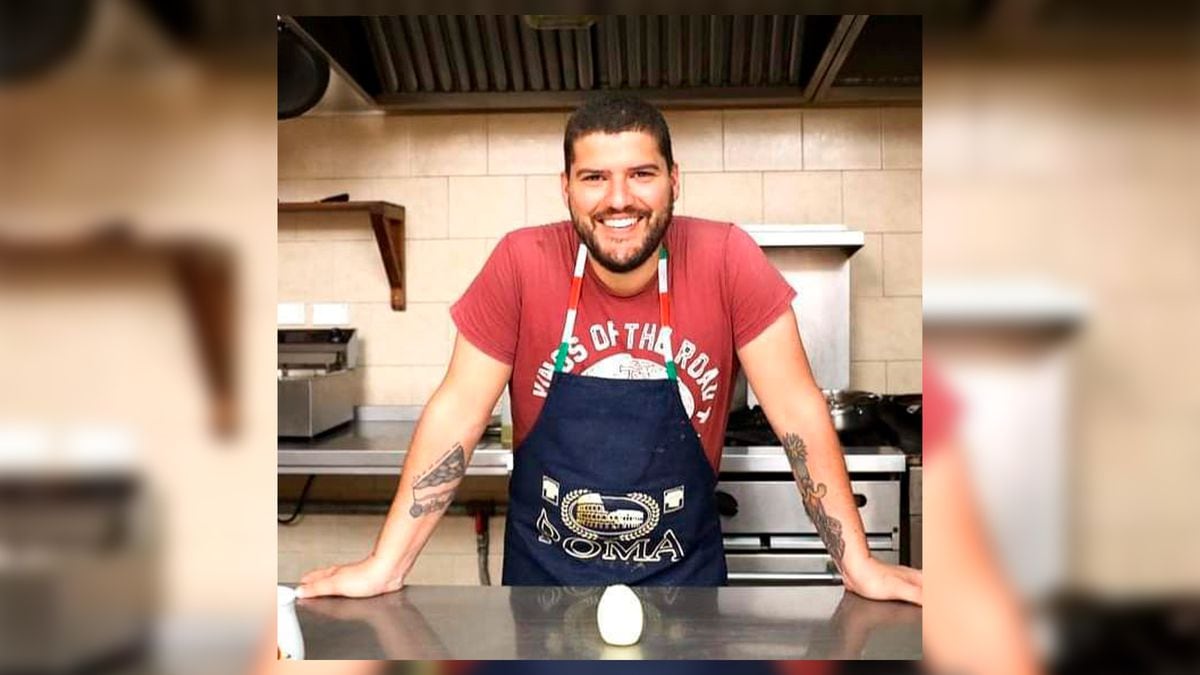Archipelago, a new power in Cuba 1:06
(CNN Spanish) -
It is a difficult year for Cuba, hit by the covid-19 pandemic and a long economic crisis, and shaken by some unusual peaceful protests in July to ask for greater freedom and improvements in the economic situation on the island.
The shortage of food and medicine, and the cuts in the electricity supply, among other problems, have been aggravated in recent times due to the impact of the pandemic on tourism - the main source of foreign currency - and the effects of the economic sanctions imposed. by the government of former United States President Donald Trump, not yet dismantled by Joe Biden.
ABC of the protests called for November 15 in Cuba
These sanctions, in addition, are lifted on the embargo of the United States to the island imposed in 1960.
Now, the civic group Archipelago has called for a round of protests called "Peaceful March for Change", which will take place on November 15 despite the rejection of the government of Miguel Díaz-Canel.
With pressure from the United States still strong and growing internal discontent, what are the allies that the Cuban government still has allies?
advertising
Russia
Since the breakdown of diplomatic relations between the United States and Cuba in 1961, two years after the triumph of the Cuban Revolution led by Fidel Castro, the island has maintained close ties first with the Soviet Union and then, after its dissolution, with Russia.
After the collapse of the Soviet Union, no Russian leader visited Cuba until 2001, when President Vladimir Putin traveled to the island to meet with Castro.
(Credit: Adalbertp Roque / AFP / Getty Images)
During the Cold War, Havana and Moscow maintained close political relations, due to the ideological closeness between both communist governments;
strategic, because of their shared stance against the United States, which even led to the Missile Crisis in 1962;
and economic, which resulted in subsidies for between US $ 4,000 and 6,000 million from the Soviet Union to Cuba.
The fall of the USSR in 1991 and the rise of Russia, amid the chaos and economic crisis in the Eurasian giant, put an abrupt brake on these close ties, although the understanding between Havana and Moscow remained latent.
And in recent times the relationship began to rebuild.
In 2001 the newly elected president of Russia, Vladimir Putin, visited Cuba, and in 2009 the then president of Cuba, Raúl Castro, made a trip to Russia, the first for a Cuban leader since the end of the Cold War.
As a consequence of these first approaches, in 2014, Russia agreed to forgive part of a debt that Cuba had with the Soviet Union.
Tania Bruguera: We have to imagine tomorrow's Cuba 3:29
Since then, Russian investments on the island have increased, Havana and Moscow have re-aligned themselves in foreign relations - Cuba was one of the few countries to recognize Russia's annexation of Crimea in 2014 - and trade ties have been relaunched. -including the sale of weapons-, although without reaching the levels of the Cold War.
There have also been reports of the reactivation of an old Russian intelligence station on the island.
China
Although the Cuban government also maintains an ideological closeness with the People's Republic of China, in times of the Cold War both countries were on opposite sides: Havana sided with its ally, the Soviet Union, in the growing conflict between Moscow and Beijing. , which would lead to the eventual rapprochement between the United States and China that began in the 1970s and to a period of reforms in the Asian giant.
After the fall of the USSR, Cuba finally began to build a new relationship with China, and Fidel Castro traveled to the Asian giant in 1995.
The fruits began to be seen quickly: the commercial exchange between the two countries began to grow, bringing some relief to a Cuba affected by the brake on Soviet subsidies in the framework of its "special period".
Chinese President Xi Jinping attends a meeting with Cuba's First Vice President of the Council of State Miguel Díaz-Canel in the Great Hall of the People on June 18, 2013. (Credit: Ed Jones / AFP via Getty Images)
According to data from the Observatory of Economic Complexity of the Massachusetts Institute of Technology, China is by far the main destination for Cuban exports, with 38.2% of the total.
And it is the second originator of its imports, with 15% of the total.
Only Spain, which has a significant share in the island's tourism sector, contributes more imports to the island.
In the political sphere, relations are not as close as in the economic sphere, however.
China has been characterized by a process of modernization, market reforms and trade opening to the world - the so-called "socialism with Chinese characteristics" - while the Cuban government still remains reluctant to any reform.
But their deep financial relationship could change this.
Venezuela
Venezuela and Cuba have maintained very close relations since Hugo Chávez, who considered himself a "21st century socialist", assumed power in 1999 and that same year he visited the island for the first time as president-elect of Venezuela, according to the Cuban state newspaper Granma.
Chávez, who met many times with Fidel Castro and considered him a mentor, maintained a personal link with Cuba who moved to Venezuela.
He even treated his cancer, starting in 2011 on the island, spending much of his last years there until his death in 2013.
Shortly after taking over from Fidel, Raúl Castro traveled to Venezuela to meet with Chávez on his first trip abroad in 2008. While Nicolás Maduro, Chávez's successor, has maintained good relations.
Fidel Castro and Hugo Chávez in 2007. (Credit: STR / AFP / Getty Images)
Cuba and Venezuela were aligned on foreign relations: they opposed the FTAA project created by the United States in 2004, and Havana has condemned the recent sanctions imposed on Caracas, to name just two.
Since the beginning of the relationship, Venezuela has also sent oil to Cuba, while doctors arrive from the island –according to reports, up to 32,000–, Cuban military and intelligence advisers.
In the case of the doctors, their arrival began in 2003 within the framework of the Mission Barrio Adentro program.
Caracas describes it as a development "thanks to the strategic alliances between Cuba and Venezuela", and has recently described it as a "fundamental pillar" in the fight against covid-19.
Oil shipments from Venezuela to Cuba, started in 2000, also remain in force.
According to Reuters, in February 2021 they amounted to 66,000 barrels of crude oil and fuels a day, down from the 96,300 barrels a day reported in 2011.
Nicaragua
Cuba has also maintained a close relationship with the government of Daniel Ortega in Nicaragua, the socialist leader who came to power in 1979 in the framework of the Sandinista Revolution, supported by Havana.
Fidel Castro with Daniel Ortega in 1988. (Credit: GARCIA / AFP via Getty Images)
Diplomatic relations between Cuba and Nicaragua, cut off since the Cuban Revolution, were reestablished after the triumph of Sandinismo and from 2007, when Ortega returned to power, they deepened.
Their commercial relations do not seem essential for either of the two countries, according to the Observatory of Economic Complexity: Cuba constitutes only 0.014% of Nicaragua's imports, and is the destination of 0.092% of its exports.
But both have supported each other in recent years and the admiration of Ortega, who declared his loyalty and friendship to Fidel Castro, continues.
In 1998 Cuba sent doctors to Nicaragua to assist the victims of Hurricane Mitch, and more recently Nicaragua announced that it would send a ship loaded with food to Cuba, amid shortages on the island.
At the same time, the Nicaraguan Ministry of Health approved the emergency use of the covid-19 vaccines developed by Cuba-Abdalá, Soberana y Soberana 2-, and that it would begin to use them to inoculate children.
Embargo on Cuba







